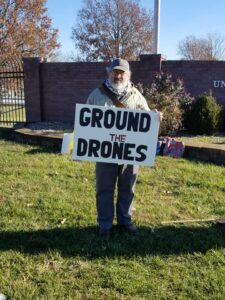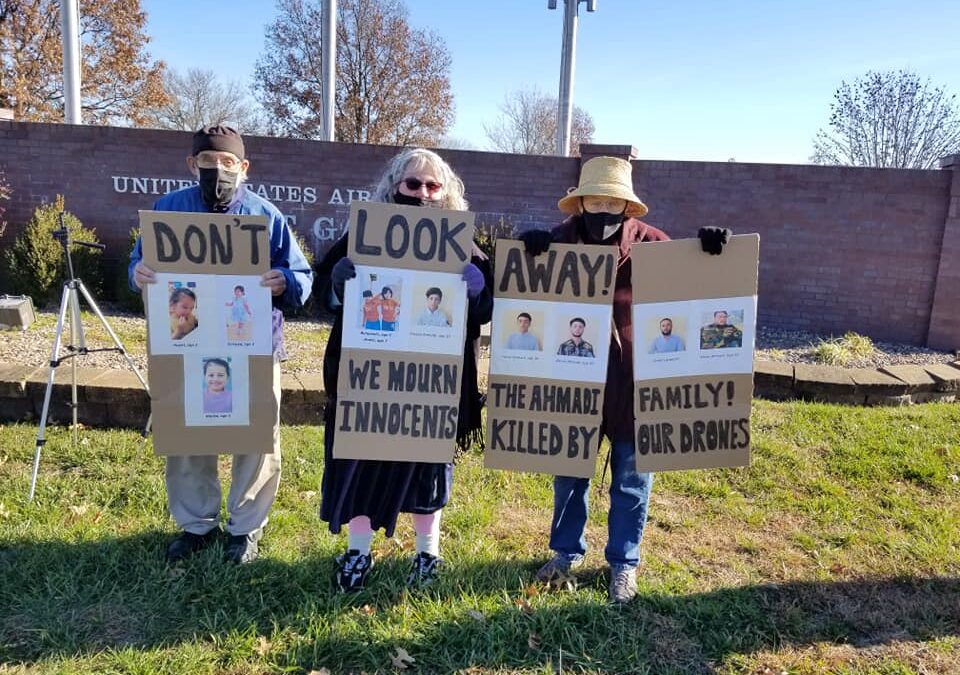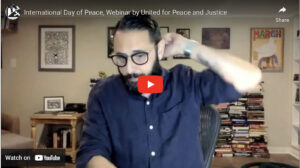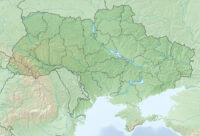No flag is big enough to cover the shame of killing innocent people – Howard Zinn
The Ban Killer Drones campaign asked peacemakers to protest drone war on Nov. 29, and PeaceWorks-KC answered the call. Fourteen of us witnessed for peace that day at Whiteman Air Force Base near Knob Noster, Mo. We condemned both the Aug. 29 drone killing of 10 members of the Ahmadi family in Kabul, Afghanistan, and the ongoing US drone strikes.
The US military mistakenly identified Zemari Ahmadi as a terrorist and killed him, seven children, and two others with a Hellfire Missile shot into his family’s courtyard. Ahmadi was categorized as a terrorist and, only after he was killed, was identified as an employee of a California-based food charity. Furthermore, drone attacks like the one that killed the Ahmadi family are not unusual. Daniel Hale is now serving four years in prison because he disclosed US government documents showing that, in Afghanistan over a five-month period, “Operation Haymaker” killed someone other than the “intended target” 90 percent of the time. What is unusual in the case of the attack that killed Ahmadi and nine of his family members is the international coverage it received during the US withdrawal from Kabul.
PeaceWorks-KC is grateful to Kathy Kelly and others from the Ban Killer Drones campaign for announcing the nationwide drone protest, “Don’t Look Away.” Activists demonstrated at 11 US bases that launch drones as well as train drone operators.
Our demands:
ban killer drones
reparations to the Afghan people
lift the sanctions that are inflicting further pain, suffering,
and starvation on the Afghan people
Brian Terrell, a longtime drone war protester from Maloy, Iowa, was our main speaker. He served 6 months in prison for trying to deliver a no-drones letter to Whiteman authorities in 2012. Before the Nov. 29 peace witness, Terrell charged, “Not only are drone operators trained at Whiteman; the Air Force 20th Attack Squadron is involved in around-the-clock remote-control combat missions with the MQ-9 Reaper drones.” The Pentagon won’t say which base fired the MQ-9 Reaper that killed the Ahmadi family, Terrell said, but it was possible it was launched from Whiteman.
Christopher Overfelt, of Veterans for Peace and of the PeaceWorks Board, welcomed us Nov. 29. He served in the US Air Force from 2002 to 2011, and he regretfully acknowledged his part in the Afghanistan war. “It’s important that I acknowledge my own role in the war on terror and the hurt that the war has caused,” he said, adding that he was pleased to see so many traveling to Whiteman to demand an end to drone warfare.
Terrell told us that Americans are being sold a Big Lie. He quoted President Joe Biden’s announcement Aug. 31: “Last night in Kabul, the United States ended 20 years of war in Afghanistan.” Terrell objected, “The US war on Afghanistan did not end—it has only adapted to technological advances and morphed into a war that will be more politically sustainable, one more intractable and more easily exportable.” He called drone attacks “war made easy,” with the US having the ability to strike terrorists and targets with little to no “boots on the ground.” In actuality, Terrell affirmed, drone warfare makes war easier to spread, easier to mainta in, and easier to sell for our political and military leaders. Drone warfare is also harder to eradicate once established.
in, and easier to sell for our political and military leaders. Drone warfare is also harder to eradicate once established.
“The first lethal drone strike in history occurred in Afghanistan on Oct. 7, 2001, when the CIA identified Taliban leader Mullah Omar, ‘on the 98 percent probability it was he,’ but the Hellfire missile launched by a Predator drone killed two unidentified men while Mullah Omar escaped,” said Terrell. And the war supposedly ended 20 years later, with the fatal drone strike that killed the Ahmadi family on Aug. 29. And in between those 20 years, thousands of innocent civilians were killed, Terrell said.
One relative of the Ahmadi family, Terrell reported, said, “America is the killer of Muslims in every place and every time; I hope that all Islamic countries unite in their view that America is a criminal.” Another mourner, said Terrell, noted, “We’re now much more afraid of drones than we are of the Taliban.”
Gen. Stanley McChrystal, then commander of US and NATO forces in Afghanistan, openly stated in 2010 that “for every innocent person you kill, you create 10 new enemies,” said Terrell.
No, the war in Afghanistan is not over.
In 1972, Rabbi Abraham Joshua Heschel wrote: “Morally speaking, there is no limit to the concern one must feel for the suffering of human beings. Indifference to evil is worse than evil itself, [and] in a free society, some are guilty, but all are responsible.”
Terrell shared that quote and then reflected, “All of us in the US, the politicians, voters, tax payers, investors, and even those who protested and resisted it, are responsible for 20 years of war in Afghanistan. We are also all responsible for ending it.”
—Mary Hladky, the mother of a veteran, serves as vice chair of the PeaceWorks-KC Board. Photos by Bennette Dibbins, PeaceWorks-KC.



